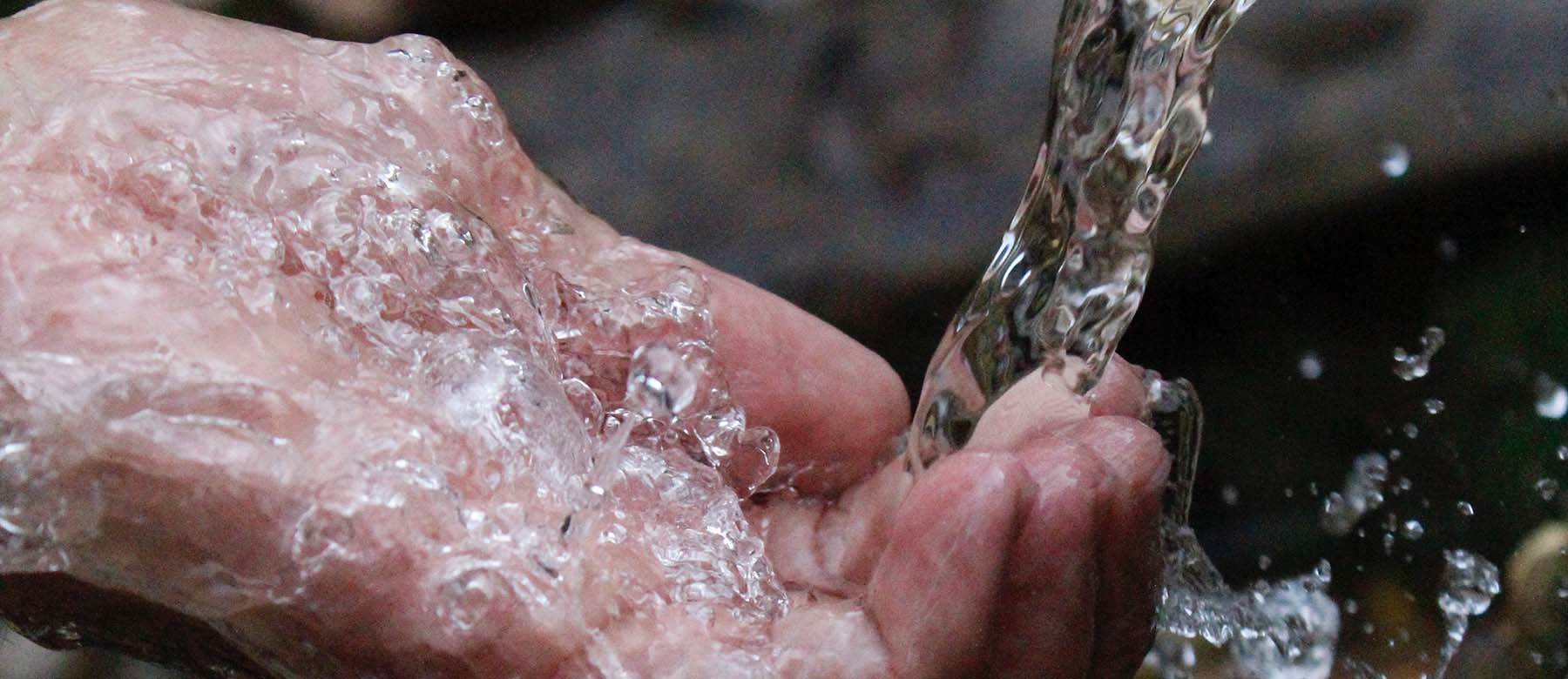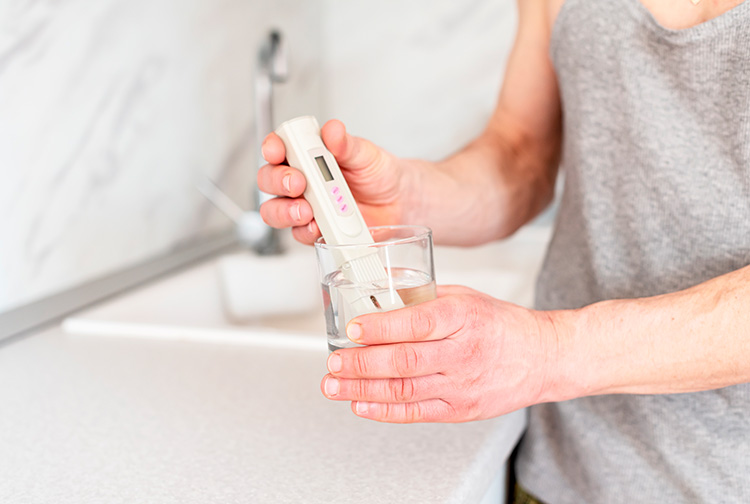

Water, an essential good in private hands
Plogui, nevi o faci sol, el subministrament de l’aigua que consumeixen més del 80% dels catalans segueix en mans d’empreses totalment o parcialment privades. Malgrat els esforços per recuperar la gestió pública d’aquest servei, les multinacionals del sector es resisteixen a perdre un negoci milionari.
A través de l’empresa pública ONAIGUA, el consell comarcal d’Osona va assumir l’abril de l’any passat la gestió del subministrament d’aigua en aquesta comarca, pel que dona servei a 11.400 punts de consum i arriba a més de 25.000 habitants. Es va convertir en el primer consell comarcal a prendre una mesura d’aquest calat.
Podríem dir que es tracta d’una anomalia del mercat, ja que el subministrament de l’aigua a Catalunya està majoritàriament en mans privades. Un reduït nombre d’empreses privades administren i es lucren d’aquest bé preuat al nostre país gràcies a concessions moltes vegades qüestionades. I això que en el món la gestió pública assorteix al 90% de la població i Nacions Unides reconeix l’aigua com un dret humà.
Segons les dades de la plataforma Aigua és vida, més del 80% dels catalans obtenen l’aigua a través d’un servei totalment o parcialment privatitzat, mentre que el que el servei públic no arriba ni al 20% de la població. Aquest desequilibri s’explica pel domini del model privat en els municipis amb un major volum de població, que són els més rendibles.
Pressió per a municipalitzar un servei bàsic
Davant aquesta realitat, existeix una creixent pressió per recuperar la gestió pública d’aquest servei. L’Associació de Municipis i Entitats per l’Aigua Pública (AMAP) ja compta amb 68 membres i representa al 47% de la població de Catalunya. Recentment, publicava un informe amb propostes de reformes legislatives per canviar aquesta situació.
Sis municipis, l’Associació de micropobles de Catalunya i una nova empresa pública es van sumar a aquesta entitat l’any 2022. Dels nous municipis, només Mieres (la Garrotxa), Collbató (Baix Llobregat) i Torroella de Montgrí (Baix Empordà) gestionen directament l’aigua. Castelló d’Empúries està en procés de municipalitzar el servei, mentre que Manlleu i Sitges encara estan lligades a concessions per més d’una dècada amb Sorea i Agbar. Quant a l’Associació de micropobles de Catalunya, cal tenir en compte que el 70% dels municipis de menys de mil habitants, que són els menys rendibles, ja gestionen directament el subministrament d’aigua.
Gairebé un monopoli
Tot i que les empreses privades que gestionen l’aigua a Catalunya es presenten amb diferents noms segons el municipi, la majoria pertanyen al grup Agbar, que està valorat en uns 3.000 milions d’euros.
Aquest grup controla totalment l’empresa Sorea i posseeix gairebé el 80% de la Companyia d’Aigües de Sabadell (CASSA), el 68% d’Aigües de Rigat (Igualada) i el 49% de l’Empresa Municipal Aigües de Tarragona (Ematsa). A més, té al voltant del 35% de Mina Pública de Terrassa i el 31% de Girona SA.
Els seus beneficis no sols provenen de la venda d’aigua, que l’any passat pretenia encarir un 7,4% a Barcelona. També de la subcontractació de serveis a les seves filials. Això permet que a la Ciutat Comtal, per exemple, el cost dels comptadors d’aigua per a l’usuari final acabi més que triplicant el cost original. Això suposa uns 17 milions d’euros de benefici addicional a l’any.
Estratègia de judicialització
Davant un negoci d’aquesta grandària no resulta estrany que Agbar porti als tribunals qualsevol iniciativa encaminada a recuperar la gestió pública del subministrament d’aigua, com detalla el portal ctxt. Només a Barcelona, aquesta multinacional i les seves entitats afins han presentat una quarantena d’accions judicials.
La seva estratègia d’empantanar judicialment aquests processos per dilatar-los o diluir-los ha fet que fins i tot posés un contenciós contra un simple conveni entre l’Ajuntament de Barcelona i l’Àrea Metropolitana per a l’intercanvi d’informació entre institucions.
Un dels casos més sonats té a veure amb la consulta que l’Ajuntament de Barcelona volia impulsar per conèixer l’opinió de la ciutadania sobre una eventual gestió pública de l’aigua. Diverses entitats, entre les quals es troba Agbar, van interposar recursos. Finalment, el Tribunal Superior de Justícia de Catalunya (TSJC) va suspendre el reglament de participació ciutadana en la part relativa a les consultes i va impedir que la iniciativa tirés endavant.
El cas que afecta un major nombre de municipis és el que Agbar va impulsar contra diversos consistoris de l’Àrea Metropolitana de Barcelona. Inicialment, una sentència del TSJC en 2016 va anul·lar la concessió a Aigües de Barcelona del subministrament d’aigua en diversos municipis del cinturó metropolità, amb la qual l’empresa s’assegurava el servei a gairebé tres milions d’habitants durant 35 anys i uns ingressos de 3.500 milions d’euros. El tribunal veia “motius d’anul·lació per vicis en el procés de contractació” quan es va constituir l’empresa mixta en la qual participava Agbar. Tot i això, el Tribunal Suprem va revocar aquesta sentència l’any 2019 en considerar que el procediment emprat per l’Administració per adjudicar el servei sense concurs públic estava avalat per la Llei de contractes del sector públic.
Pràctiques tèrboles
Com denunciava Eloi Badia, regidor d’Emergència Climàtica i Transició Ecològica de l’Ajuntament de Barcelona, les tèrboles pràctiques d’Agbar per aconseguir concessions l’han dut a ser imputat en tres macrocauses judicials (Pokémon, Púnica i Petrum), a més de ser expulsat en 2017 de la gestió de l’aigua a Girona després de demostrar-se la seva vinculació amb la trama del 3%.
Els informes d’aquesta última causa constataven que, durant més de dues dècades, els gironins van pagar més d’1 milió d’euros de sobrecost pel servei d’aigua. A més, l’Agència Tributària advertia que els directius de l’empresa havien carregat despeses personals a la societat i va concloure que Girona SA havia cobrat centenars de milers d’euros per serveis no prestats.
Com expliquem en l’article “Els serveis públics, cada vegada més privatitzats”, la privatització de serveis essencials avança de manera implacable a Europa des dels anys vuitanta. I això està tenint un preu inqüestionable per al conjunt de la ciutadania. L’agent d’11Onze Jordi Coll apunta que aquest procés ha suposat sotmetre la prestació d’aquests serveis “a la lògica de criteris de mercat i, per tant, dels beneficis privats”.
Si vols descobrir com beure la millor aigua, estalviar diners i ajudar al planeta, entra a Imprescindibles 11Onze.
Leave a Reply
You must be logged in to post a comment.





Gran article sobre la situació de privatització de l’aigua. Un dret universal sovint en mans privades.
Agraït pel compromís d’aquest article.
Gràcies
Totalment, cal remunicipalitzar l’aigüa
Hi ha certs serveis, q mai haurien de ser privatitzats i així ens va.